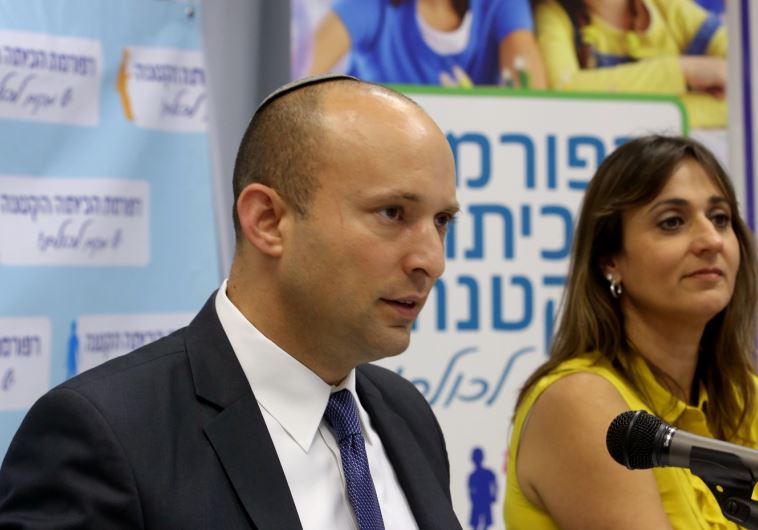Bennett to artists: You do not get it
Education minister defends call on controversial play, denies charge he makes decisions based on ‘extraneous considerations'
 Education Minister Naftali Bennett announces small classroom reform(photo credit: SASSON TIRAM)Updated:
Education Minister Naftali Bennett announces small classroom reform(photo credit: SASSON TIRAM)Updated: